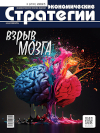Impact of Artificial Intelligence on Cybercrime. Economic and Legal Aspects of its Decrease
DOI: 10.33917/es-2.200.2025.104-109
The article examines fundamental causes of fraud in the financial sector based on global practice and Russian experience in fighting cybercrimes. Growing indicators prove ineffectiveness of all measures taken, including restrictions imposed by states. The issue can be resolved only by turning to the alpha and omega of economic science — to a man or more precisely to a human capital, which the author in his previous studies, based on works of the Soviet cybernetic school, have defined not only as knowledge, talents and abilities, but also as directed thinking algorithms. These algorithms now have become the main object of appropriation. Banks, IT-corporations, telecom operators and fraudsters compete for them in order to control a person and induce him to transfer his financial resources or his data for their appropriation by fraudsters.
References:
1. Rezul’taty ezhegodnogo vserossiyskogo sotsiologicheskogo monitoringa “Finansovaya gramotnost’ rossiyan — 2024” [Results of the Annual All-Russian Sociological Monitoring “Financial Literacy of Russians — 2024”]. Analiticheskiy tsentr NAFI, Moscow, 2024, available at: https://nafi.ru/upload/iblock/9bd/9bd4081
a5c55f503ab6610296892ed2a.pdf?utm_referrer=https%3A%2F%2Fdzen.ru%2Fmedia%2Fid%2F5d41a1ee8da1ce00afb2d1e5%2F66c5dd22a7321d7404b4c06e
2. Alekseevskikh A. “Rodstvennik popal v bedu”. Novye skhemy moshennichestva i layfkhaki dlya rossiyan [“A Relative Got into Trouble.” New Fraud Schemes and Life Hacks for Russians]. Gazeta.ru, 2024, 6 sentyabrya, available at: https://www.gazeta.ru/amp/business/2024/09/06/19704493.shtml
3. Dornadula V.N., Geetha S. Credit Card Fraud Detection Using Machine Learning Algorithms. Procedia Computer Science, 2019, no 165, pp. 631–641, DOI:
https://doi.org/10.1016/j.procs.2020.01.057
4. Thennakoon A., Bhagyani C., Premadasa S., Mihiranga S., Kuruwitaarachchi N. Real-Time Credit Card Fraud Detection Using Machine Learning. 2019 9th International Conference on Cloud Computing, Data Science & Engineering (Confluence), Noida, 2019, 10–11 January, pp. 488–493, available at: https://ieeexplore.ieee.org/document/8776942; https://doi.org/10.1109/CONFLUENCE.2019.8776942
5. Bouch A. 3-D Secure: A critical review of 3-D Secure and its effectiveness in preventing card not present fraud. University of London, Londra, 2011, DOI:
https://doi.org/10.14201/ADCAIJ2016535561
6. Buell S. What is Securities Fraud 61 Duke L.J. 511. 2011–2012, available at: https://scholar.google.com/citations?view_op=view_citation&hl=en&user=OTE8FpMAAAAJ&citation_for_view=OTE8FpMAAAAJ:UebtZRa9Y70C
7. Pokida A.N., Zybunovskaya N.V. Razlichiya v povedencheskikh praktikakh po sokhraneniyu i ukrepleniyu zdorov’ya sredi rabotnikov umstvennogo i fizicheskogo truda [Differences in Behavioral Practices for Maintaining and Improving Health Among Mental and Physical Workers]. Zdorov’e naseleniya i sreda obitaniya — ZNiSO, 2022. № 9. S. 18–28. DOI: https://doi.org/10.35627/2219-5238/2022-30-9-18-28



